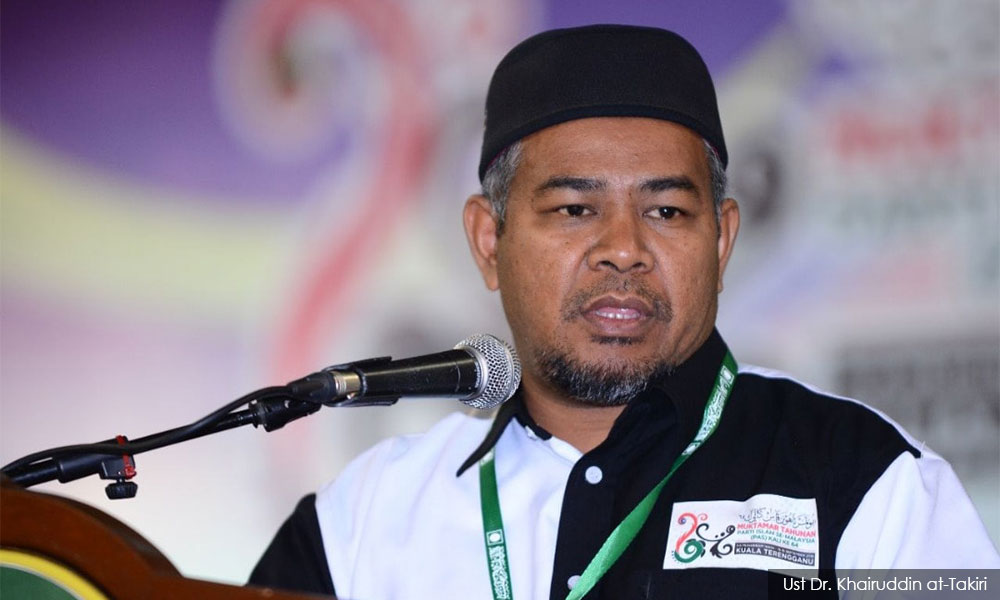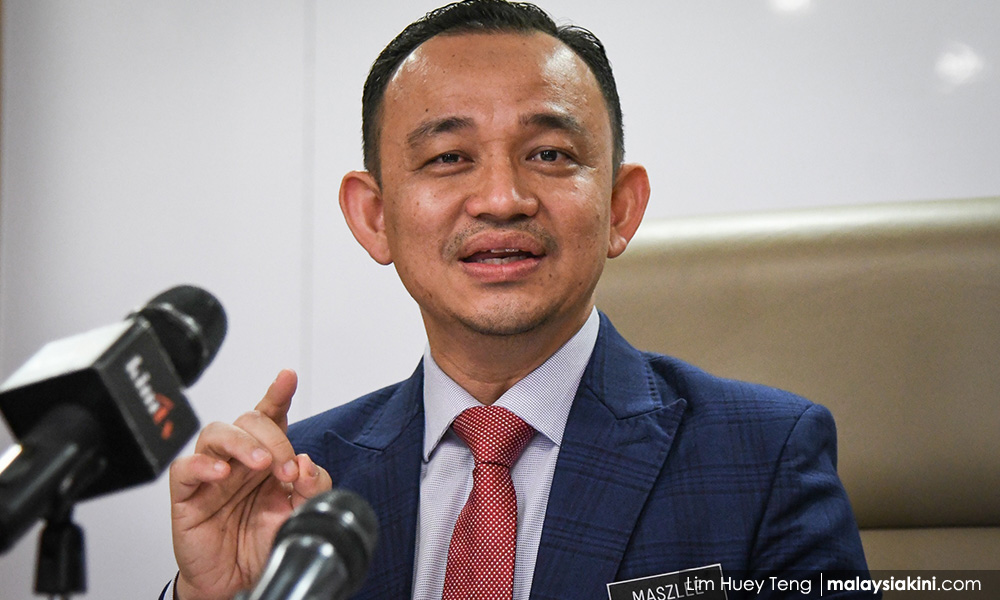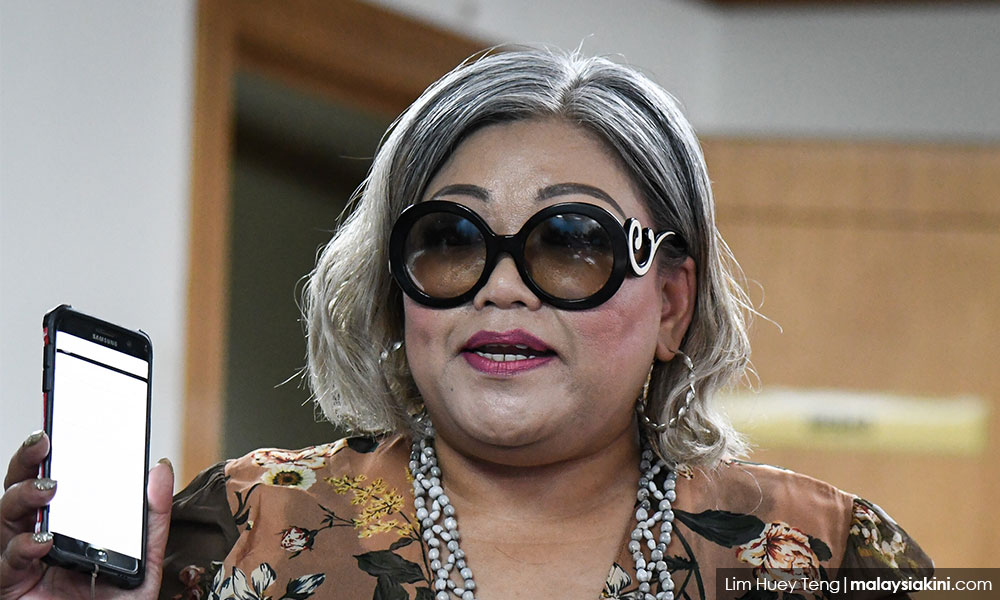
"The mind once enlightened cannot again become dark.”
― Thomas Paine
Lim Kit Siang in 2017, attempting to put a positive spin on the Islamisation process, said the DAP supports the Islamisation process in Malaysia if done through the Constitution.
He defined the Islamisation process as one that “promotes a nation-building process based on tolerance and mutual respect in a plural society, and not one which engenders bigotry, hatred and extremism.”
Has the Islamisation process, as defined by Lim, ever been this way? Is it this way under the Pakatan Harapan regime?
PAS central committee member Khairuddin Aman Razali (above), in welcoming a move by the Education Ministry to reject a proposal to teach non-Islamic religions in schools and universities, claimed that such a move could run afoul of the constitution.
Citing the relevant statute, which essentially means the proselytisation of non-Islamic religions is a big no-no, the PAS central committee member instead put forward the idea that non-Muslim students should be taught Islam.
This is how politicians manipulate racial and religious issues for political gain or appeasement. To appease Islamic sentiments in whatever coalitions non-Muslims find themselves in, Lim puts forward such an idea as he did in 2007, while someone like the PAS committee member trolls non-Muslims with his statements, and retreats to the constitution to justify non-implementation of religious or racial egalitarian policies because he knows Malay power structures will not stray from the reservation when it comes to issues like these.

We have an education minister who has strong Islamic education bona fide which, to some like the DAP’s Ong Kian Ming, is “impressive,” but who routinely parrots right-wing talking points.
In a piece questioning the need for religion in our public education, I asked: “If a Malay/Muslim academic had to be chosen, surely there were candidates in a party like Amanah, for instance, which is stacked to the brim with academic types. Their CVs may not involve the subject of Islam, but a wide range of disciplines which would have looked very good in the Education Ministry portfolio.”
This is the point of a kakistocracy, right? An unqualified candidate to further entrench incompetency.
The Islamisation process in our education system is the most potent weapon the Malay establishment has in its arsenal. This idea that non-Muslims have to be educated on Islam comes in various guises.
A couple of years back Pahang Umno objected to people politicising the fact that a school in Kuantan forced non-Muslim students to stay in school until after Muslim prayers were carried out. All this was justified on the grounds that non-Muslims students could learn about Islam. This was just an overt way to demand compliance.
This idea that non-Islamic religions should be introduced in schools to foster some kind of “unity” was not a well-thought idea in the first place. How can you impart non-Islamic religions to young people who have been taught from a young age that their religion is superior to all others? How can you attempt to discuss religious truths, never mind religious history, to young people who have been taught that submission to dogma is the only way to demonstrate piety?

One of the best articles about reforming the education system, which in turn would foster cross-cultural ties, was by Siti Kassim (above): "Please leave religion at home. Teach it if you want, but do it outside of normal school hours. Let our children be among their peers as human beings without any differentiation of beliefs and faiths. Let them celebrate their differences without adults telling them who is better than others."
Whenever we talk about religion in our education system, it is always about politics. How could it not be? A couple of years ago, I got into a public spat with Rafizi Ramli about the Titas course ((Islamic and Asian Civilisation Studies) which he thought was a good idea to make compulsory for private tertiary level students. His justification was that this would encourage some kind of engagement between young people in this country.
In defending Lim Teck Ghee against charges of being “anti-Malay” for opposing such a proposal, I reminded Rafizi of the basis of Lim's objection: “It was his (Teck Ghee's) contention that such educational imperatives were akin to the indoctrination courses of the Biro Tatanegara (BTN) and merely another form of state-sanctioned propaganda. Those same BTN courses that were manipulating Malay sentiment and using Islam as a tool to divide the nation was disavowed by Pakatan on a state level.”
Non-Muslims do not need to be taught about Islam. The religion of the state is present in every facet of our lives. We are constantly reminded not to comment on Islam. We are constantly reminded that the sanctity of Islam needs to be protected, and often this means disparaging other religions. We are censored or are censured when we object to religion encroaching into our public space.
Minorities rarely have to learn about the culture of the majority. As minorities, we understand the world we live in. This has never been about non-Muslims not understanding Islam. The reality is that we understand Islam all too well. This is just another way in which the political process is subverted to further the far-right agendas of this country.
From a young age, non-Muslims are taught to be mindful of what they say to Muslims or how they define the religious dialectic in this country. The Muslim narrative of non-Muslims (and their culture) is that they are a danger or a bad influence on the Muslims polity in this country.
How does the state encourage cultural exposure when you have a quota system? How can the state encourage cross-cultural exposure when the mainstream narrative of the state is based on the rhetoric that non-Malays are an economic and social threat to the dominant majority?
What Harapan should be doing is keep religion out of the education system. It is as simple as that.
S THAYAPARAN is Commander (Rtd) of the Royal Malaysian Navy. A retired barrister-at-law, he is one of the founding members of the National Patriots Association. - Mkini
No comments:
Post a Comment
Note: Only a member of this blog may post a comment.